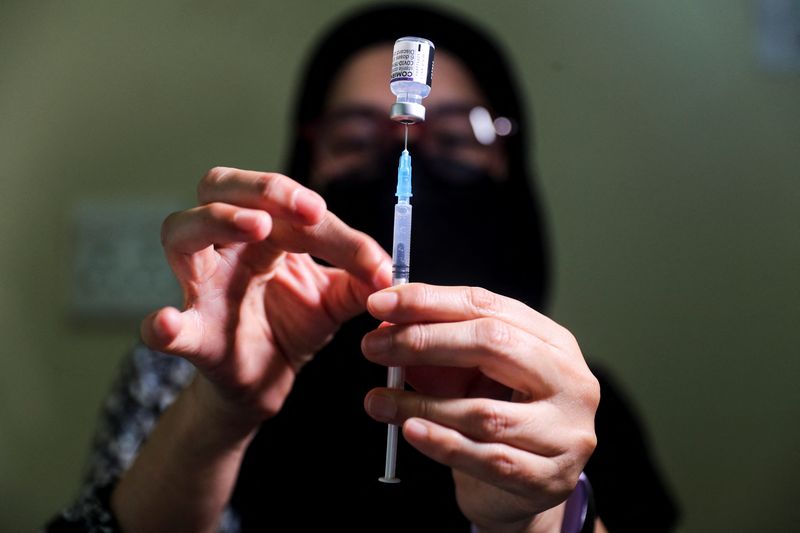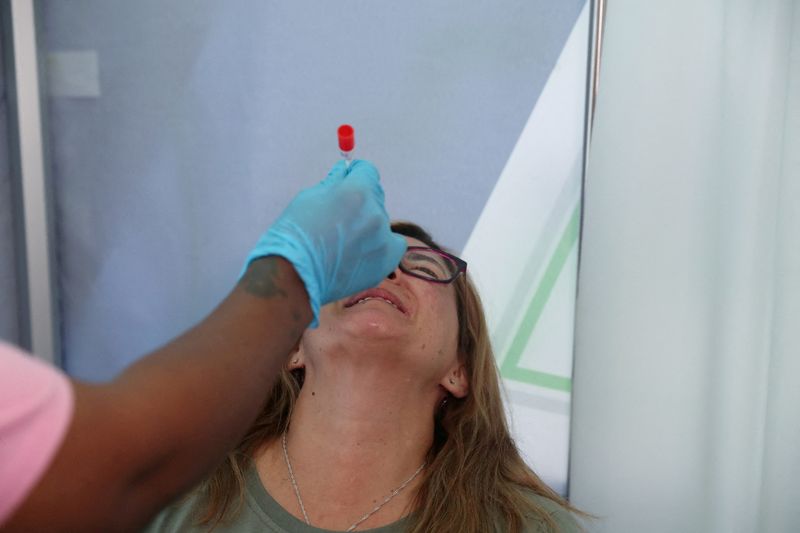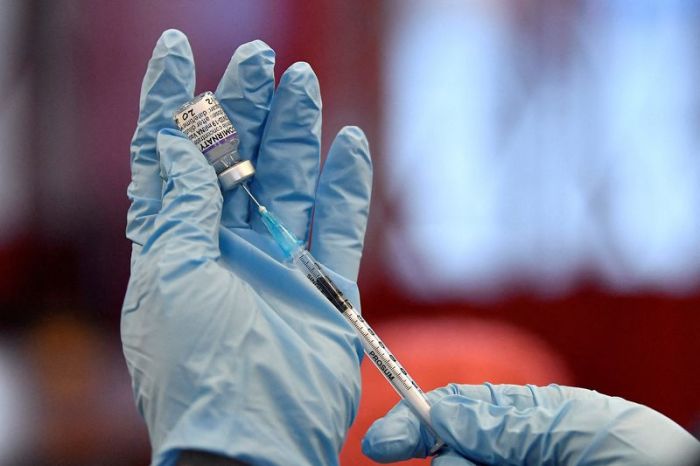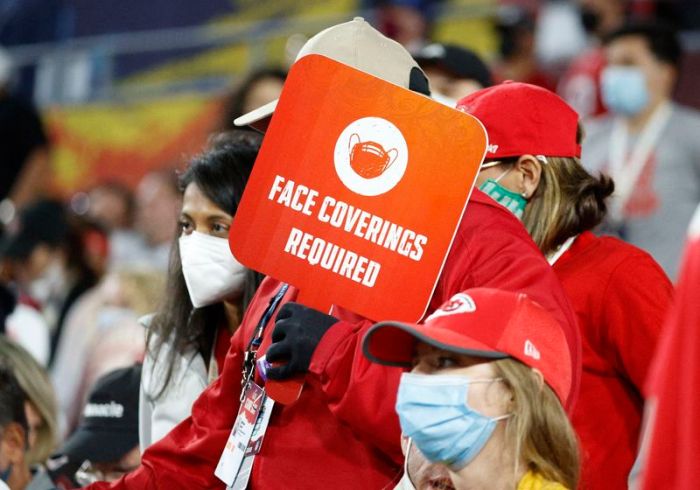JOHANNESBURG (Reuters) -South Africa’s health minister said on Friday that the government believed that vaccines and high levels of prior COVID-19 infection were helping to keep disease milder in a wave driven by the Omicron variant.
There have been early anecdotal accounts suggesting that Omicron is causing less severe illness than previous variants in South Africa but scientists say it is too early to draw firm conclusions.
The country reported a record number of daily infections earlier this week.
“We believe that it might not necessarily just be that Omicron is less virulent, but … coverage of vaccination (and) … natural immunity of people who have already had contact with the virus is also adding to the protection,” Health Minister Joe Phaahla told a news conference. “That’s why we are seeing mild illness.”
South Africa has given 44% of its adult population at least one dose of COVID-19 vaccine, more than many African countries but well short of the government’s year-end target. But among the over-50s vaccination coverage levels are over 60%.
Addressing the same news conference, Michelle Groome from the National Institute for Communicable Diseases (NICD) said there had been an uptick in COVID-19 hospital admissions and deaths.
“Starting to see a slight increase in deaths nationally, but once again this level is very much lower even than the baseline period we were seeing between the second and third waves,” said Groome, who heads the NICD’s division of public health, surveillance and response.
Waasila Jassat, a public health specialist at the NICD, estimated that of the COVID-19 related deaths that had happened in hospitals since mid-November more than half of the people who had died had co-morbidities, or tended to be old, and “a fair proportion of them were admitted for other reasons and died from other causes”.
She said that vaccination data on those who had died were incomplete but it seemed from self-reported information that 93% of the deaths were among either unvaccinated or not fully vaccinated individuals. She added that a further 3.5% of those who had died had been vaccinated more than five or six months ago.
Phaahla said early indications were that infections might have peaked in the most populated Gauteng province, where cases initially surged.
He added that in the coming week the health department would report back to the National Coronavirus Command Council on whether COVID-19 restrictions should be adjusted.
President Cyril Ramaphosa, who tested positive for COVID-19 on Sunday, is making good progress with his recovery from COVID-19 while continuing to receive treatment for mild symptoms, the presidency said on Friday.
Ramaphosa was given Johnson & Johnson’s one-dose vaccine in February.
(Reporting by Alexander Winning; Editing by Christopher Cushing and Giles Elgood)

























